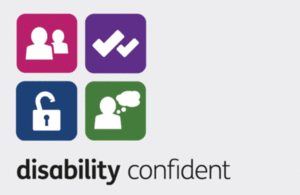150 job or training placements for disabled people every working day
The Prime Minister hails new figures on the first anniversary of Disability Confident campaign, as over 1,000 British businesses sign up to the campaign.

Disabled people are moving into jobs or training opportunities at a rate of over 750 placements every single week, new figures reveal, as part of the government’s drive to help more disabled people into work.
The 140,000 opportunities since 2011 mark the first anniversary of the Prime Minister’s campaign Disability Confident, which has toured the country showcasing the talents of disabled people to more than 1,100 business and public sector employers. It’s also worked to dispel myths about employing people with disabilities.
Falklands veteran and businessman Simon Weston and Paralympic gold medallist Sophie Christiansen have spearheaded the campaign. Businesses as diverse as Honda, Sainsbury’s, Barclays, Asda, Fujitsu, Marks & Spencer, easyJet, TfL, BP, Glaxosmithkline, Royal Mail and Balfour Beatty have committed to changing their employment practices with disabled people.
Prime Minister David Cameron said:
More and more businesses are seeing beyond someone’s disability and realising the tremendous talents and skills they can bring to a job.
Disability Confident is an important part of our long-term plan – supporting employers, breaking down barriers, helping people to reach their potential and businesses to get the talented workforce they need.
Since January 2011, the government’s jobs support has achieved:
- more than 61,000 disabled people into work through the Work Programme
- nearly 24,000 into jobs through the Work Choice scheme
- almost 29,000 work experience placements for disabled people
- over 16,000 placements for disabled people at sector-based work academies, which is work experience leading to a guaranteed job
Minister of State for Disabled People Mark Harper said:
We have come a long way in dispelling outdated views about disabled people in the workplace, as these figures show. Yet thousands more could still be following their career dreams by applying for Access to Work. It pays for unique and tailored support for more than 30,000 people and could help your business take on talented disabled people, or if you’re a disabled worker, get or keep a job yourself.
Access to Work provides financial help towards the extra costs faced by disabled people at work, such as support workers, specialist aids and equipment and travel to work support.
While the employment rate for disabled people has gradually increased over time, only 45% of Britain’s 6.5 million working-age disabled people are in work. However:
- when last calculated Britain’s 12.2 million disabled people had a spending power of £80 billion and hiring them can increase the number of disabled people who use a business or service
- disabled people generally stay in the job for longer, have a strong commitment to their job and lower rates of absenteeism.
Falklands veteran and businessman Simon Weston said:
Disabled people are some of the best employees. We’re some of the most determined workers, who go the extra mile to secure results. To overlook the skills and talents of people because they have a physical or mental disability will ultimately be costing you money.
Chief Executive of Barclays Retail and Business Banking Ashok Vaswani said:
People with disabilities have huge amounts of ideas and energy to offer employers, which no forward-thinking business can afford to do without. I urge all businesses to seriously consider what they can do as employers to attract more people with disabilities to their organisations.
The figures also show 8,590 businesses have been started by disabled people with help from the government’s New Enterprise Allowance.
Founder of easyJet Sir Stelios Haji-Ioannou said:
Already over 100,000 disabled entrepreneurs employ an equivalent number of people in their business start-ups. The entrepreneurial flair amongst disabled people in Great Britain is extraordinary and the businesses in this country overlook the talents of disabled people at their peril.
As we approach the second anniversary of London 2012, a survey shows nearly 70% of the British public feel attitudes towards disabled people have improved since the London Paralympic Games.
2012 Paralympics gold medallist Sophie Christiansen said:
Just because disabled people might be a bit different, this does not mean we should be looked at any differently in the workplace or anywhere else. We all have unique talents and deserve the opportunity to fulfil our true potential. As my story shows, when that happens we can achieve great things.
Disability Confident toured Britain, going to Manchester, London, Leeds, Cardiff, Glasgow, Birmingham and Swindon.
More information
Disability Confident campaign
Disability Confident is a 2-year campaign aimed at helping UK businesses to become more disability confident about removing the barriers to employment for disabled
Statistics
Related employment statistics include:
Paralympics
Paralympics data from Office for National Statistics (ONS) Opinions and Lifestyle Survey is part of a national cross-sectional survey which provides a snapshot of views and opinions. It currently runs 8 months of the year, and conducts around 1,100 interviews each month.
Access to Work
The government’s flagship disability employment programme – Access to Work – provides financial help towards the extra costs faced by disabled people in mainstream jobs and helps around 30,000 disabled people every year.
Role Models: Inspire a Generation campaign
To help inspire young disabled people, the government has launched the Role Models: Inspire a Generation campaign on YouTube, using short video clips to showcase disabled role models who talk about their aspirations and achievements and the barriers that they have had to overcome in order to achieve their dreams.